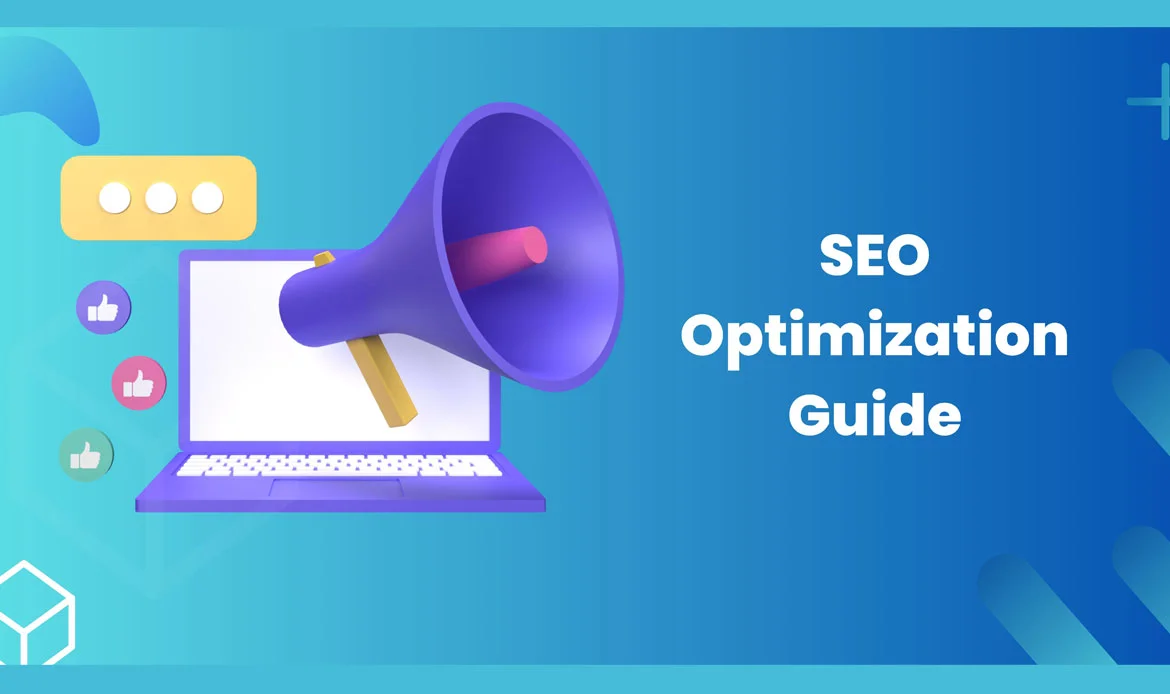In 2025, mastering WordPress SEO has become essential for online success. With Google’s evolving algorithms and user behavior trends, optimizing your WordPress website ensures higher visibility, better engagement, and sustainable traffic growth.
This comprehensive guide covers everything from choosing an
1. Use an SEO-Friendly Theme
Choosing an SEO-friendly WordPress theme is the foundation of your optimization strategy. A poorly coded theme can slow down your website, affecting search rankings and user experience. Themes with clean code, fast load times, and mobile responsiveness offer a significant advantage. Look for lightweight frameworks like Astra, GeneratePress, or Kadence that comply with Google’s Core Web Vitals. Ensure your theme includes schema markup, accessibility standards, and compatibility with popular SEO plugins. Always test your chosen theme using tools like PageSpeed Insights before going live.
- Choose themes optimized for speed and performance
- Ensure mobile-friendly, responsive design
- Validate schema markup for better search snippets
- Check compatibility with SEO plugins and builders
2. Use a Free WordPress SEO Plugin

Installing a powerful WordPress SEO plugin like Yoast SEO, Rank Math, or All in One SEO helps you manage on-page optimizations effectively. These plugins allow you to create XML sitemaps, edit meta titles and descriptions, and set canonical URLs to prevent duplicate content. They also provide content analysis tools that help you optimize your posts for readability and keyword density. The free version of these plugins covers most SEO essentials, making them ideal for beginners aiming for higher rankings in 2025.
- Create and submit XML sitemaps automatically
- Optimize meta tags and descriptions for search intent
- Set canonical URLs to prevent duplicate issues
- Analyze readability and keyword balance in content
3. Optimize Images and Videos
In the era of visual content, image and video optimization is critical for
- Compress images without losing quality
- Use alt text with meaningful keywords
- Enable lazy loading for media content
- Include video transcripts and schema markup
4. Do Keyword Research

Effective keyword research is the core of every successful
- Identify primary and secondary target keywords
- Use long-tail keywords for niche targeting
- Incorporate LSI and semantic keywords
- Monitor performance with Google Search Console
5. Choose Custom URLs for Pages and Posts
Using custom WordPress URLs improves both SEO and user experience. Avoid generic or auto-generated URLs filled with numbers or irrelevant text. Instead, structure your permalinks with meaningful words reflecting your target keyword. A clean URL format like “/wordpress-seo-guide” performs far better than “/post?id=1234.” Custom URLs help search engines understand your content’s hierarchy, making indexing faster and more efficient.
- Enable SEO-friendly permalink structure
- Use keywords in URLs naturally
- Keep URLs short, clean, and descriptive
- Avoid special characters or stop words
6. Optimize Page Titles and Descriptions

Well-crafted page titles and meta descriptions increase click-through rates and visibility in SERPs. Your title should include the focus keyphrase and encourage engagement. Meta descriptions act as a sales pitch for your page, enticing users to click. Keep your title under 60 characters and the meta description under 160 characters for best display. Use active language and call-to-action phrases that match user search intent to maximize traffic potential.
- Include focus keyphrase naturally in the title
- Write compelling meta descriptions with action verbs
- Stay within the ideal character limits
- Ensure uniqueness across all pages
7. Manage Categories and Tags
Organizing your WordPress categories and tags correctly improves site structure and crawlability. Categories group related content, while tags refine those topics for specific searches. Over-tagging or duplicating category names can confuse search engines. Keep your taxonomy clean and logical to help users and crawlers navigate easily. Use descriptive names containing relevant keywords without over-optimization.
- Use categories for broad topics and tags for subtopics
- Avoid duplicating names or keyword stuffing
- Limit each post to a few relevant tags
- Interlink category pages to improve site hierarchy
8. Build Internal Linking Strategy

Strategic internal linking boosts SEO by distributing link equity and guiding users to valuable content. Every page should link to other relevant posts or categories within your site. This improves navigation, reduces bounce rates, and helps search engines understand content relationships. Use descriptive anchor text and ensure that no important page is left orphaned. Regularly audit your internal links to maintain an optimal structure.
- Use descriptive anchor text with context
- Link new articles to older related posts
- Balance link distribution across all pages
- Fix broken or outdated internal links regularly
9. Image Text and File Naming
Optimizing image file names and alt text is a subtle yet powerful WordPress SEO tactic. Before uploading, rename your files using descriptive, keyword-rich terms like “wordpress-seo-guide-2025.jpg.” Avoid default names like “IMG001.jpg.” Alt text provides context for both users and search engines, improving accessibility and visibility in Google Images. Maintain consistency between image content and alt descriptions for best SEO impact.
- Rename images before uploading with keywords
- Use clear and concise alt text
- Keep filenames lowercase and hyphen-separated
- Avoid overusing the same keywords across all images
10. Select a Reliable Hosting Provider
A fast and secure WordPress hosting provider is the backbone of SEO performance. Search engines prioritize websites that load quickly and stay online consistently. Choose hosts with solid uptime, SSD storage, and CDN integration. Providers like SiteGround, Kinsta, or WP Engine offer built-in caching and SSL support for enhanced site security. Regular backups, malware scans, and speed optimization tools should be part of your hosting package to ensure long-term stability and performance.
- Prefer SSD-based hosting for faster load times
- Use CDN integration for global content delivery
- Ensure free SSL and daily backups
- Choose scalable plans for future growth
✔ Content Strategy Tips for WordPress SEO
Developing a strong content strategy is essential for boosting your WordPress SEO in 2025. Focus on creating in-depth, high-quality content that addresses your audience’s pain points and search intent. Use a mix of blog posts, guides, infographics, and videos to engage different user types. Consistently update older posts to maintain relevance and include internal links to guide visitors to related content. An effective content strategy increases dwell time, reduces bounce rates, and signals authority to search engines.
✔ Monitor and Analyze Your SEO Performance
Tracking your WordPress SEO performance is crucial to understand what works and what needs improvement. Use tools like Google Analytics, Google Search Console, and third-party SEO software to monitor traffic, bounce rate, and keyword rankings. Regular analysis helps identify gaps in content, technical issues, or optimization opportunities. By consistently reviewing performance, you can adjust strategies, improve user experience, and ensure long-term SEO success in 2025.
✔ Leverage Social Signals for Better Visibility
While social media may not directly impact rankings, it enhances
Frequently Asked Questions
1. What makes WordPress SEO in 2025 different from previous years?
In 2025, WordPress SEO focuses more on user intent, Core Web Vitals, and AI-driven search results. Search engines now reward websites that provide exceptional user experience, mobile responsiveness, and fast-loading content. Using structured data, optimizing multimedia, and adopting natural language keywords are key differences that separate 2025 SEO strategies from older practices.
2. How can I improve my WordPress SEO without paid tools?
You can significantly boost WordPress SEO performance using free tools and built-in features. Start by installing plugins like Yoast SEO or Rank Math to manage metadata, XML sitemaps, and readability analysis.
3. Why is speed optimization crucial for WordPress SEO in 2025?
Speed optimization plays a major role in WordPress SEO because Google’s ranking systems now prioritize fast, mobile-friendly websites. A slow site increases bounce rates and reduces user satisfaction, directly harming SEO performance. In 2025, optimizing speed through caching plugins, lightweight themes, and image compression is more critical than ever.
Conclusion: Elevate Your Rankings with Smart WordPress SEO
WordPress SEO in 2025 is no longer just about keywords—it’s about creating an optimized, user-centric experience that aligns with Google’s evolving algorithms. From choosing an SEO-friendly theme and optimizing your images and URLs to building a strong internal linking strategy, every detail impacts your site’s visibility. A successful optimization plan requires consistency, quality content, and technical precision.
By implementing the proven tactics discussed in this guide—such as keyword research, structured metadata, and high-speed hosting—you can future-proof your website and achieve sustainable organic growth. Remember, great SEO is an ongoing process, not a one-time fix; keep refining, analyzing, and improving your WordPress SEO strategy to stay ahead of competitors and maintain top positions in search results.
Supercharge Your WordPress SEO Today with Premium Themes
Boost your site’s rankings, speed, and performance with themes optimized for SEO and user experience. Grab SEO-Optimized Themes now to elevate your WordPress website!


